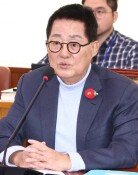US government decided to offer subsidies to semiconductor industry
US government decided to offer subsidies to semiconductor industry
Posted March. 22, 2024 07:37,
Updated March. 22, 2024 07:37
The U.S. government has unveiled a comprehensive support plan for the semiconductor industry, with Intel and Samsung Electronics at the forefront. Intel, a U.S.-based semiconductor company, is set to receive a staggering 19.5 billion dollars in subsidies and loans. Meanwhile, Samsung Electronics, which is constructing a semiconductor foundry plant in the U.S., is also expected to benefit from a support plan, albeit of a smaller scale than that for Intel.
Under President Joe Biden's leadership, the U.S. government unveiled a comprehensive support plan during his visit to Intel’s foundry plant in Arizona. The plan includes 8.5 billion dollars of subsidies and 11 billion dollars of loans, a significant increase from the initially predicted support. This amounts to about 37 percent of the CHIPS and Science Act, which was enacted in 2022 and has a support plan worth 52.7 billion dollars. Additionally, 25 percent of Intel's corporate tax on its facility and equipment investment will be deducted. The plan also includes support for Samsung Electronics of South Korea and TSMC of Taiwan, with each company set to receive six billion and five billion dollars in subsidies, respectively. The US government’s strategy to focus support on Intel while also supporting TSMC and Samsung Electronics is evident.
Countries began to compete over semiconductor subsidies, which were initiated by the U.S. Japan, which is dreaming of reviving its semiconductor industry, is preparing another round of subsidies, followed by the first round of support worth 18 trillion won. The European Union decided to invest 62 trillion won of public and private sector money by 2030. China is creating a “Big Fund” worth 36 trillion won to support the semiconductor industry, while India is raising subsidies of 13 trillion won to support up to 70 percent of semiconductor plan construction costs for companies that are building plants in the country.
While countries around the world are engaging in a war of money to support the industry with the trend of new protectionism, South Korea, where the semiconductor industry is one of its key sectors, is silent. Its government has not even taken the first step to discuss subsidies due to the social prejudice against offering favorable treatment to large companies and the government’s financial situation. While the K-CHIPS Act was passed in March last year, it only offered a tax deduction of 15 percent for large companies’ equipment investment, which is coming to an end at the end of this year. Before the general elections, the semiconductor support plans proposed by the ruling and opposition parties simply extend the support act and deregulate without taking further actions.
If the South Korean semiconductor companies’ R&D and production hubs are outsourced to overseas countries due to the incentives of subsidies, high-quality jobs in the country will decrease. South Korea's global influence by leveraging its semiconductor industry position will weaken. The restrictions posed by foreign governments in exchange for offering subsidies will limit what South Korean companies can do. Unless the South Korean government and political circles have a sense of urgency and come up with practical support plans before it’s too late, it will be difficult to protect the country’s semiconductor industry base.







